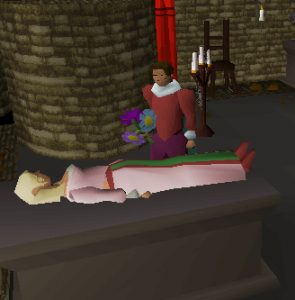How My Experiences in Story-rich Video Games Cultivated My Appreciation for Literature and Art
Growing up in the 90s with an older brother it was inevitable that the world of video games would one day envelop me in its addictive embrace. In fact, growing up in the 90s provided me with a front row-seat of reality versus the digital era during a time when computers, software and even hardware were becoming more user-friendly and accessible to the everyday layman. I witnessed the evolution of the computer and gaming console with a great sense of awe, and my young and impressionable mind soaked it up like a sponge, it was and still is one of the most wonderful things to experience.
Video games take up the bulk of my early memories; where some people might reminisce on their childhood milestones such as riding a bike, learning to swim or even their first ever camping trip, when I think back to my childhood all I see is the fictional worlds of which I spent so much of my time absorbed in. In 2001 I quit karate lessons when a friend introduced me to the world of Geilinor in Runescape, and suddenly my reality was sucked into this virtual, multi-player world which revived my love for writing and even drawing as I attempted to connect my two worlds together. To this day some of my fondest memories are condensed quests—with narratives that were satirically based on old classics such as Frankenstein, Bram Stoker’s Dracula, and Romeo and Juliet it became clear to me that Runescape was not simply about grinding out levels and meeting new people, it had a complex and culturally deep foundation.
Why is this relevant to digital literature? It is relevant because video games are still brand new, they have yet to find a place within our culture that is worthy of deeper thought and speculation and most people, at least those who do not even care to give them a chance, still dismiss them as cheap entertainment, or a way to pass the time rather than a revolutionary tool to speculate about the world in all of its cultural and moral ambiguity. Video games themselves are a capable form of social criticism, their stories are often derived from real-world events, however altered to fit the simulated scenarios. First Person Shooters and Real Time Strategy games, while incredibly competitive by nature, are still derived from cultural practices of war and combat, and some games take this a step further to commentate on the world of war that is less visible, for example: This War of Mine.
That being said, story-rich games are usually the ones which leave the most impressions, they are “timeless” and referenced, often for decades. Games like the Baldur’s Gate series and Planescape are heralded as a landmark in the evolution of narrative and interactive choice in video games and are often the point of which people delegate their comparisons and expectations. The important thing to note here is that people do have expectations, they expect quality and thought-provoking moral dilemmas, and character development in a living, organic, and interactive world that they can bring to life.



